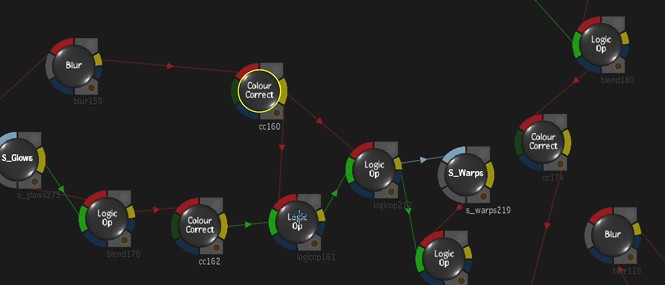Our fxguidetv ep with Flame artist Sam Edwards was incredibly popular. So much so that we listened to our viewer requests and signed Sam up to teach a course this term at fxphd. As a bonus, we have an extra 30 minutes of outtakes from the original interview covering his work on the new Cosmos: A Spacetime Odyssey TV series. Edwards spent eight months working in the production offices on vfx for the new TV series. He composited almost 250 shots, which was approximately 1/6th of the show.
Edwards was recently one of the named Emmy nominees in the “Outstanding Special and Visual Effects” category for work on the show.
Edwards has owned his own Flame system for years — and been on the box for even longer. At IBC 2013, he was honored with “Recognition for versatility using Flame” as part of the Flame Award event. He recently made the move to the Anniversary edition of the software, and the new features and capabilities were a critical part of the project.
Check out a promo for his new course, FLM208: Batch Compositing Techniques in Flame & Flare, followed by the bonus material we recorded with Sam, but couldn’t fit in the fxguidetv ep.
We also found out a bit more about Sam, as well as his new course here at fxphd this term.
Can you give a brief history/overview of your time as a flame artist?
I began working in Flame in NYC around the time the flame was introduced. I was primarily doing vfx for commercials. As an early adopter I got to work on some very high profile work for the big soft drinks, cars, and other national clients. Next I came to California to work on movies, and was lucky to work in some of the great studios, like Digital Domain and ILM for seven years.
Since then I’ve been freelancing around LA, still working on films, but splitting my time between flame and supervising.
In addition to using Flame, you also work in NUKE on various projects. What do you like about Flame compared to NUKE?
Flame is way more interactive. In flame you see the comp change before you release the tablet, so you can dial in your work much faster. Flame was designed to give real time feedback and it does. I also believe that a lot of the tools in flame have a depth to them that you don’t get in Nuke.
And reversing that question…what do you like about NUKE compared to Flame?
Nuke is great when you have a lot of CG coming down the pipe and you need that quick access to new elements. For a long time the depth of color was better, but I don’t believe that’s true anymore.
If you’re looking to hire someone, what are some things that really stand out on a reel for you — both good and bad?
For a compositor, edge quality is vital. You can see right away if somebody really knows how to use the tools and who’s putting band-aids on it. I also really look for work that solves problems.
You work with a lot of other artists — what makes someone really valuable to you on the job? Is it simply the end creative result…or does technical and other skills come into play?
I like to work with people who do great work, everybody does. But somebody who likes to share ideas and is open to trying new things is awesome. There are people who are very selfish in their motivations, and others who know that the success of the project is more important than looking good to the supervisor. It’s also essential to detail oriented. You need to check your work and be sure that nothing broke while addressing a note.
What’s your overall aim for the course…what will members get out of it?
I hope that the members will at least know what makes a senior flame artist. How to work any key to perfection. And a firm foundation of particles, tracking, projection, color science, and image warping.
Do they have to be Flame artists to get something out of your course?
I think anybody curious about what a flame can do should take the course. I’m trying to call out where things are similar to nuke.
Teaching a course at fxphd takes a great deal of preparation — and you have a day job. What compelled you to lead the Flame course this term?
I think that whatever is good for the flame platform is good for me. If there were 100 artists out there who are doing better work after this class, it would be great. It will only increase the profile of the platform.
Sam’s website can be found at http://popopfx.com/
